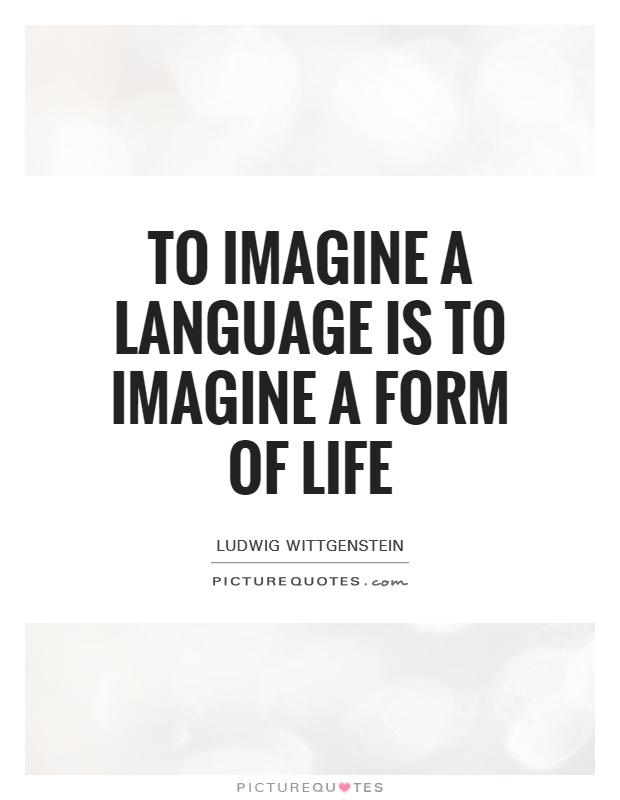To imagine a language is to imagine a form of life

To imagine a language is to imagine a form of life
Ludwig Wittgenstein, a renowned philosopher of language, famously stated that "to imagine a language is to imagine a form of life." This statement encapsulates his belief that language is not just a tool for communication, but a fundamental aspect of human existence that shapes our understanding of the world and our interactions with others.Wittgenstein's philosophy of language is deeply rooted in his concept of language games. He argued that language is not a fixed set of rules or symbols, but a dynamic system of practices and activities that are embedded in specific social and cultural contexts. Each language game has its own rules, conventions, and meanings, which are shaped by the form of life of the community that uses it.
For Wittgenstein, language is not just a means of expressing thoughts or ideas, but a way of life that structures our experiences and relationships with others. When we imagine a language, we are also imagining the social practices, beliefs, and values that are associated with it. In this sense, language is not just a tool for communication, but a reflection of our shared experiences and ways of being in the world.
Wittgenstein's concept of language games also highlights the diversity and complexity of human language. He believed that there are countless ways of speaking and understanding the world, each shaped by the unique form of life of the community that uses it. This diversity is not a limitation, but a testament to the richness and creativity of human language.












 Friendship Quotes
Friendship Quotes Love Quotes
Love Quotes Life Quotes
Life Quotes Funny Quotes
Funny Quotes Motivational Quotes
Motivational Quotes Inspirational Quotes
Inspirational Quotes